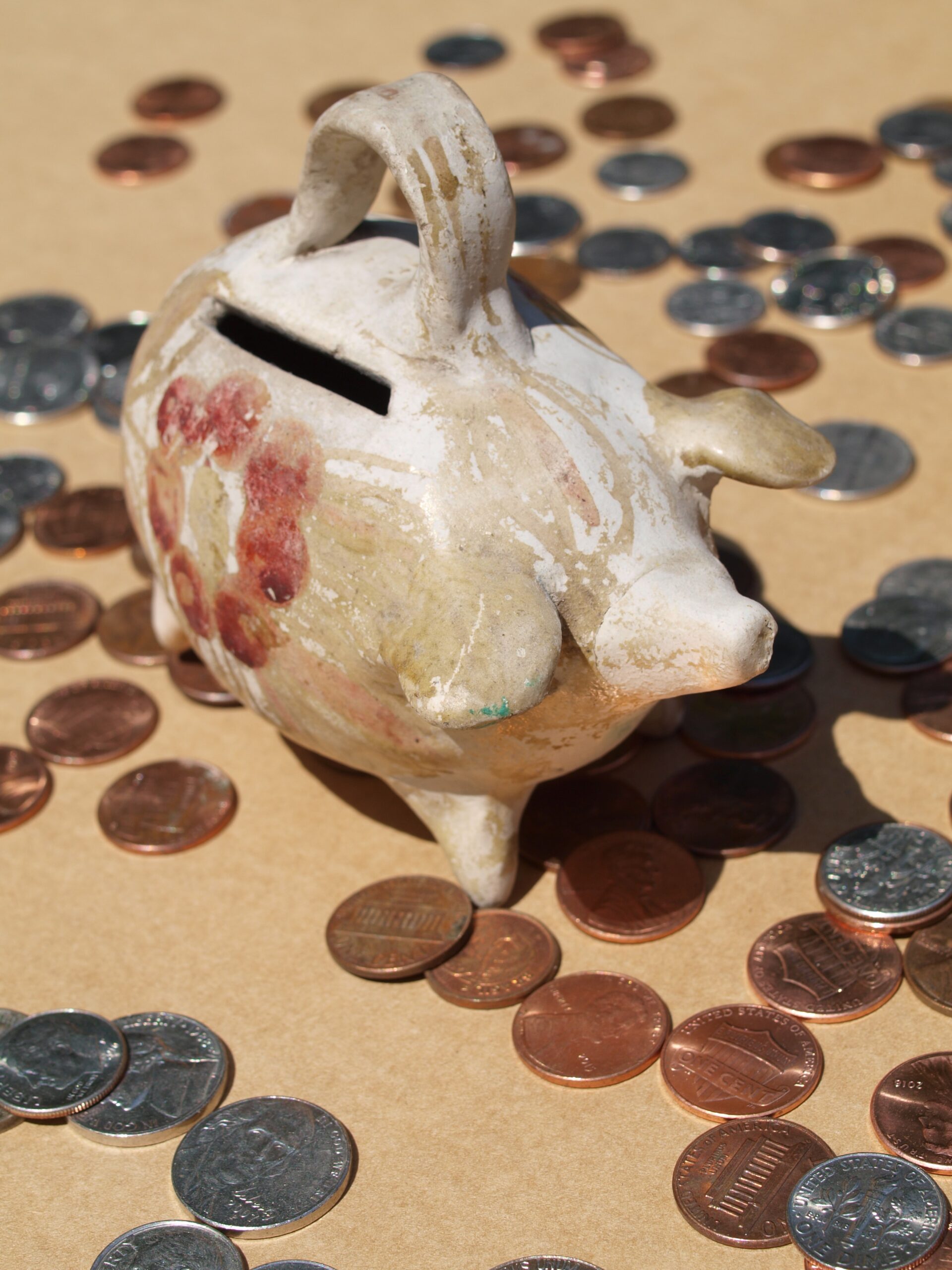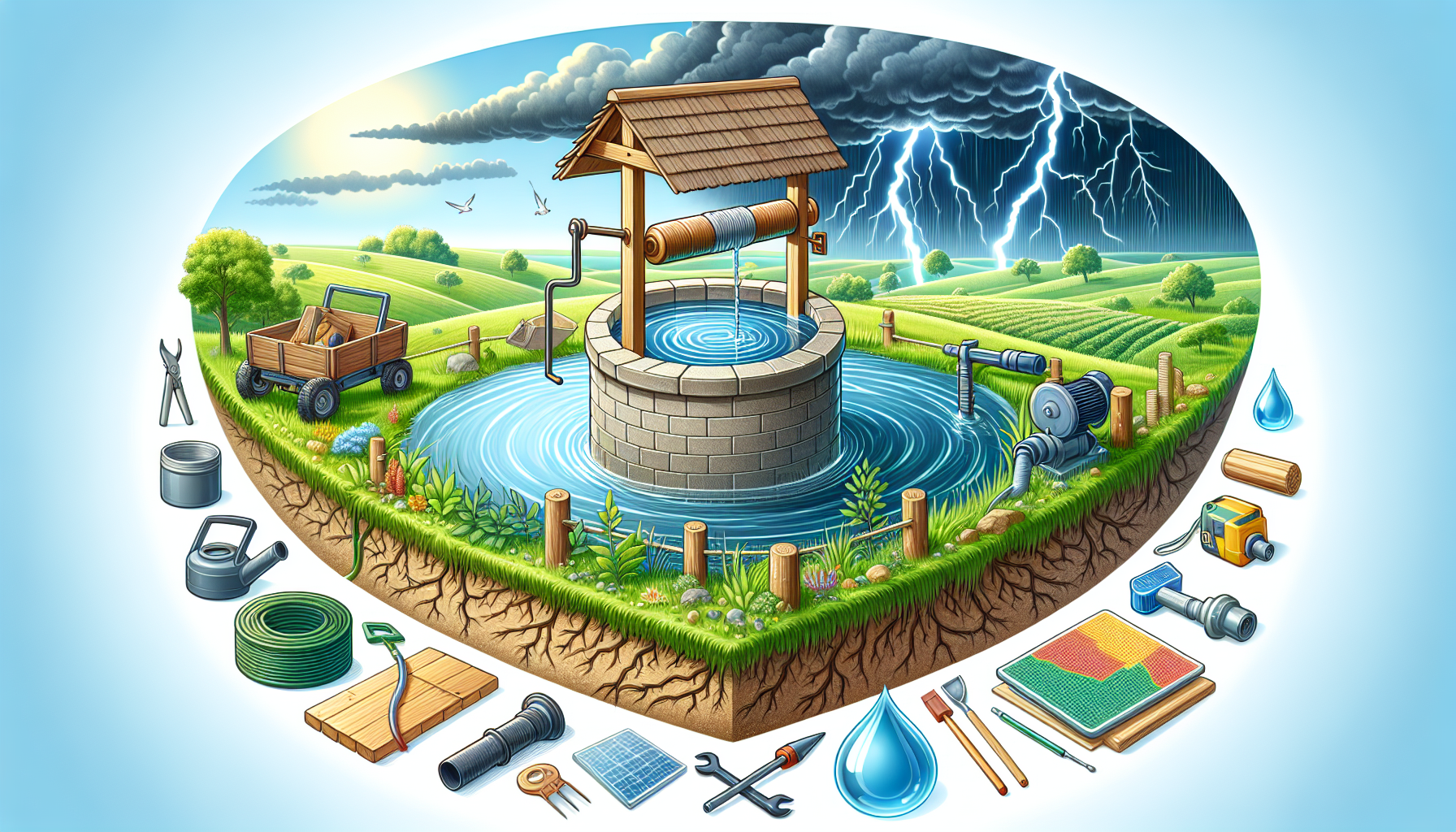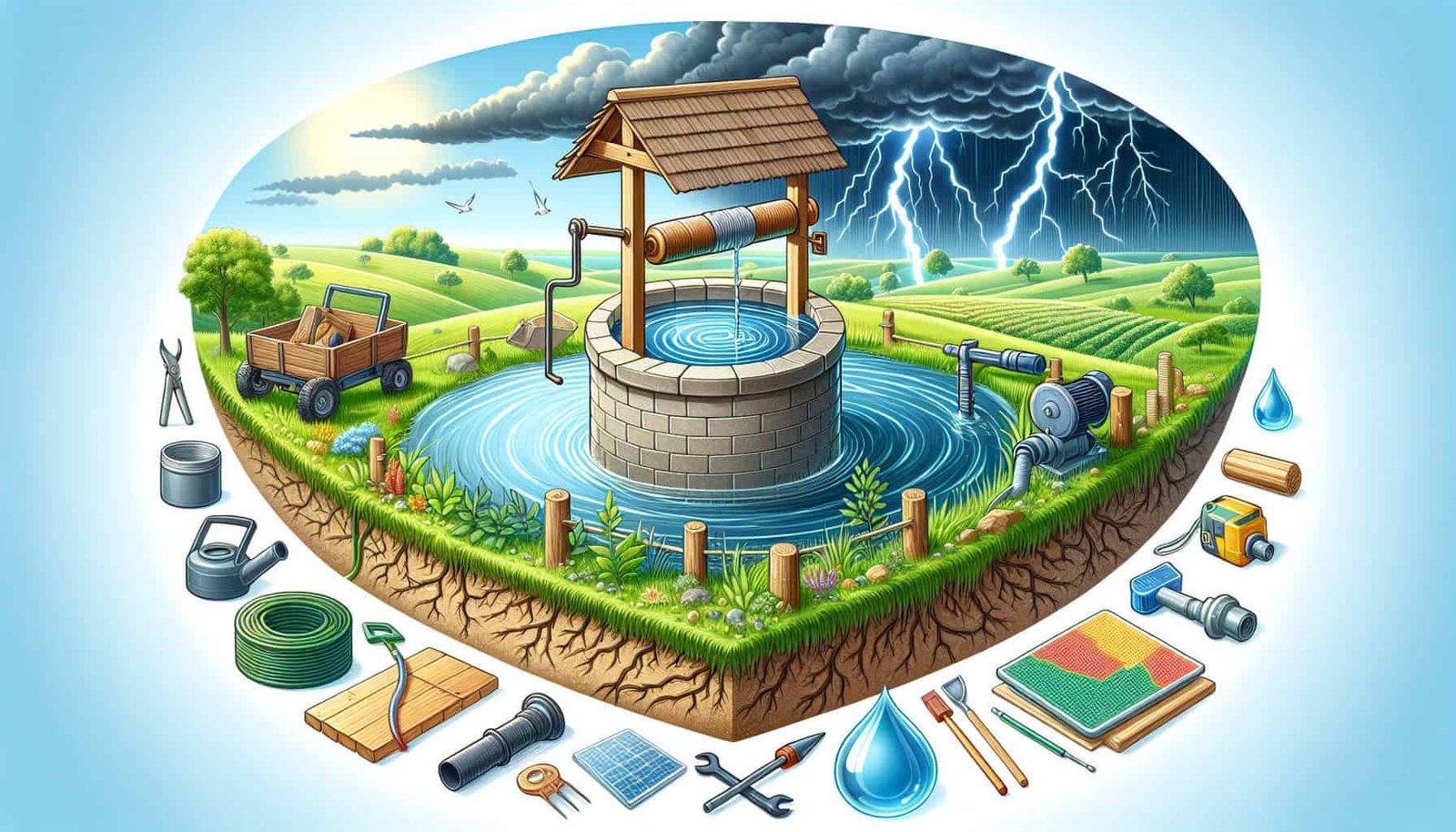Are you a well owner located in a region with heavy rainfall? If so, you may be wondering how to gather information about resources that can help you maintain the quality and sustainability of your well. Look no further! In this article, we will explore various avenues for obtaining valuable knowledge about resources tailored specifically for well owners in regions with abundant rainfall. From government agencies to online forums, we’ve got you covered. So, sit back, relax, and let’s dive into the world of well ownership in rainy regions!
Understanding Well Ownership
Defining well ownership
Well ownership refers to the legal and financial responsibility of maintaining and managing a private water well. A water well is an underground structure that taps into a groundwater source to provide water for residential, agricultural, or commercial purposes. As a well owner, you have the privilege of accessing your own water supply and the responsibility to ensure the well is constructed, maintained, and used in compliance with local regulations and guidelines.
Benefits of owning a well
Owning a well comes with several advantages. Firstly, it provides you with a reliable and uninterrupted water supply, especially in regions with heavy rainfall where surface water sources may be prone to contamination during floods. Additionally, having your own well gives you control over the quality of your water. Municipal water supplies often undergo extensive treatment processes, but with a private well, you have more control over the testing and treatment of your water.
Another benefit of well ownership is the potential cost savings. While there are upfront costs associated with drilling a well and installing pump systems, the long-term savings on water bills can be significant. Moreover, owning a well grants you greater independence from external water providers, ensuring access to water even during water shortages or emergencies.
Responsibilities of well owners
With the privileges of well ownership come responsibilities. As a well owner, it is your duty to ensure the proper construction, operation, and maintenance of your well to protect the groundwater and ensure the safety of your water supply. Regular inspections, testing, and maintenance are necessary to prevent contamination and identify any potential issues with your well.
You are also responsible for complying with local regulations and obtaining the necessary permits for drilling wells or making modifications. Monitoring water usage to avoid overuse and wastage is another responsibility of being a well owner. By fulfilling these responsibilities, you can maintain the longevity of your well and contribute to the sustainability of your groundwater resources.
Challenges in Regions with Heavy Rainfall
Effect of heavy rainfall on wells
Regions with heavy rainfall are prone to unique challenges when it comes to well ownership. Excessive rainfall can lead to an increased water table, causing the water level in the well to rise or even flood the well. This can result in the contamination of the well water with pollutants, debris, and even pathogens. Moreover, heavy rainfalls can erode the surrounding land, potentially compromising the structural integrity of the well casing or allowing surface water to seep into the well.
Common issues faced by well owners
Well owners in regions with heavy rainfall often have to tackle specific issues. Flooding is a major concern as it can disrupt the functionality of the well system and contaminate the water supply. Heavy rainfall can also lead to increased sedimentation and turbidity in the well, affecting water quality. Additionally, the overall maintenance and repair of wells can become more challenging due to the increased wear and tear caused by heavy rains.
Need for specialized resources
Given the unique challenges faced by well owners in regions with heavy rainfall, there is a need for specialized resources and support. Local government agencies, environmental protection organizations, and agricultural extension services can provide valuable assistance and guidance. It is essential for well owners in these regions to familiarize themselves with the available resources to mitigate the specific challenges associated with heavy rainfall.

Government Agencies and Organizations
Local government departments
Local government departments often play a crucial role in regulating and overseeing wells and groundwater resources. They can provide information on regulations and permits required for well installation and modification. Additionally, they may offer guidance on well construction standards and can assist in ensuring compliance with local laws. Contacting your local government department responsible for water resources can provide you with the necessary information and support.
Environmental protection agencies
Environmental protection agencies have a vested interest in maintaining the quality of groundwater and can provide valuable resources for well owners. They often offer educational materials, training programs, and informational guides on safeguarding well water from contamination. These agencies may also conduct water testing programs or recommend certified laboratories for well water analysis, ensuring the safety and quality of your water supply.
Agricultural extension services
Agricultural extension services are organizations that offer resources and support to farmers, including those who rely on wells for irrigation. These services can educate well owners on efficient irrigation practices and water conservation techniques specifically tailored to agricultural needs. They may also provide assistance in managing water usage, evaluating soil moisture, and optimizing crop irrigation schedules to ensure efficient water usage.
Educational Resources
Online well owner training
Online well owner training programs offer a convenient and comprehensive way to learn about well ownership and maintenance. These programs can cover topics such as well construction, water testing, maintenance best practices, and troubleshooting common issues. They often include interactive modules, videos, and quizzes to enhance your understanding. These resources can be accessed at your own pace and provide a valuable foundation for well owners in regions with heavy rainfall.
Local workshops and seminars
Attending local workshops and seminars on well ownership can offer valuable insights and networking opportunities with other well owners in your area. Organizations such as government agencies, environmental groups, and well owner associations often host these events. Workshops and seminars cover a wide range of topics, including well construction techniques, water conservation strategies, and effective water treatment methods. Engaging in these events provides an opportunity to interact with experts and gain practical knowledge.
Well owner manuals and guides
Well owner manuals and guides are invaluable resources that contain comprehensive information on well ownership and maintenance. These publications often cover topics such as well construction, water testing, troubleshooting common issues, and recommended maintenance schedules. They may also provide valuable tips on managing heavy rainfall events and protecting wells from flooding. Well owner manuals and guides can either be obtained from local government offices or downloaded from reputable websites.

Water Testing and Treatment
Importance of water testing
Water testing is a critical aspect of maintaining the safety and quality of your well water. Regular testing allows you to identify any potential contaminants or issues that may affect the health of your water supply. In regions with heavy rainfall, where well water is more susceptible to contamination, frequent testing becomes even more important. It helps ensure that your water meets the necessary health and safety standards and provides peace of mind for you and your loved ones.
Certified laboratories for testing
To obtain accurate and reliable water test results, it is essential to use certified laboratories. These laboratories have the necessary expertise and equipment to analyze water samples and provide detailed reports. Contacting your local environmental protection agency or health department can help you find certified laboratories in your area. They can guide you on the procedures for collecting and submitting water samples and may provide assistance with interpreting the test results.
Water treatment options
If your water test results reveal any contaminants or issues, water treatment becomes necessary to ensure the safety and quality of your water supply. The appropriate treatment options will depend on the specific contaminants or issues identified. Common treatment methods include disinfection techniques like chlorination, filtration systems for removing sediment and particles, and water softening systems to address hard water issues. Consulting with water treatment professionals can help you determine the most suitable treatment options for your well water.
Well Maintenance and Repair
Regular well maintenance checklist
Regular well maintenance is essential to prevent breakdowns, extend the lifespan of your well, and maintain water quality. Here are some tasks that should be included in your regular maintenance checklist:
- Visual inspection of the well and surrounding area for signs of damage or erosion.
- Testing the well pump performance and monitoring water pressure.
- Cleaning and disinfecting the well casing, screens, and components.
- Removing any debris, vegetation, or obstructions around the well.
- Checking the well cover or cap for proper seal and security.
- Monitoring water quality through regular testing and comparing results to previous records.
- Maintaining accurate records of maintenance activities, test results, and any changes in well performance.
By following this checklist, you can proactively address any potential issues and ensure the proper functioning of your well system.
Professional well inspection services
In addition to regular maintenance, periodic professional well inspections are recommended to assess the overall condition and performance of your well. Well inspection services often utilize specialized equipment to evaluate the structural integrity of the well casing, test the flow rate, measure water levels, and identify any potential issues. These inspections can provide a comprehensive assessment of your well and help identify problems early on, preventing costly repairs or water quality issues.
Dealing with common well issues
Well owners may encounter common issues during the lifespan of their wells. Some of these issues include low water pressure, pump malfunctions, well pump motor burnout, and sediment accumulation. When faced with these issues, it is important to consult professionals specializing in well repair and maintenance. They can diagnose the problem, offer suitable solutions, and ensure that your well is back in proper working condition. Promptly addressing these issues will help maintain the efficiency and longevity of your well.

Water Conservation Techniques
Efficient irrigation practices
Conserving water is essential, especially in regions with heavy rainfall where excess water can lead to flooding and waterlogging. Efficient irrigation practices can help minimize water waste and optimize water usage. Some techniques for efficient irrigation include:
- Implementing drip irrigation systems that deliver water directly to plant roots.
- Utilizing weather-based irrigation controllers to adjust watering schedules based on weather conditions.
- Regularly checking and repairing leaks or faulty sprinkler heads to prevent unnecessary water loss.
- Mulching garden beds and plantings to reduce evaporation and maintain moisture.
By employing these techniques, you can conserve water, minimize runoff, and ensure that your well water is used efficiently.
Rainwater harvesting systems
In regions with heavy rainfall, rainwater harvesting systems can be an excellent way to supplement your well water supply. These systems collect rainwater from rooftops and other surfaces, store it in tanks or cisterns, and utilize it for non-potable purposes such as irrigation, laundry, or flushing toilets. Rainwater harvesting reduces dependency on the well during wet periods, conserves groundwater resources, and provides an additional source of water during dry seasons.
Water-saving appliances
Installing water-saving appliances can significantly reduce household water usage, benefitting both the environment and your well supply. Consider replacing old toilets, faucets, and showerheads with water-efficient models that conserve water without compromising performance. Additionally, using washing machines and dishwashers with energy-efficient and water-saving features can help reduce overall water consumption. These simple adjustments can make a significant impact on water conservation and the longevity of your well.
Emergency Preparedness
Creating an emergency plan
Preparing for emergencies is crucial for well owners, especially in regions prone to heavy rainfall and flooding. Creating an emergency plan ensures that you are well-equipped to handle any unexpected events that may compromise your water supply. Some key components of an emergency plan for well owners include:
- Identifying potential risks and hazards that may affect your well, such as nearby water bodies or flood-prone areas.
- Establishing a communication plan with family members, neighbors, and emergency services in case of a well-related emergency.
- Identifying alternative water sources, such as nearby community wells or bottled water supplies.
- Storing emergency supplies, including bottled water, a backup power source, and necessary tools for well maintenance and repair.
- Routinely testing and maintaining emergency equipment to ensure it is functional when needed.
By proactively planning for emergencies, you can minimize disruptions to your water supply and ensure the safety of your household.
Ensuring backup power supply
During heavy rainfall events, power outages are not uncommon, and relying on electricity to power your well pump may not be sufficient. Having a backup power supply, such as a generator or battery-powered system, ensures that your well can still function during power failures. It is important to have these backup systems installed, regularly maintained, and ready for use in case of emergencies. This preparation allows you to continue accessing water even when the main power supply is interrupted.
Dealing with flooding situations
Flooding poses a significant risk to wells, as it can contaminate the water supply and damage the well components. In the event of a flood, it is crucial to take immediate action to protect your well. Here are some steps to consider:
- Disconnect the power supply to the well to prevent electrical hazards.
- If possible, seal the well with a watertight cover to prevent floodwaters from entering.
- Avoid using water from the well until it has been properly inspected and tested for contamination.
- Consult professionals to assess any damage and make necessary repairs to your well.
Navigating through flooding situations can be stressful, but by following these precautions, you can safeguard your well and ensure the safety of your water supply.

Financial Assistance Programs
Government grants and loans
To support well owners in regions with heavy rainfall, government agencies often provide financial assistance programs. These programs may offer grants or low-interest loans for activities such as well drilling, repairs, upgrades, and water testing. They are designed to ease the financial burden associated with maintaining a well and ensuring the safety and sustainability of the water supply. Contacting your local government offices or checking their websites can provide information on the availability of such programs.
Non-profit organizations offering aid
Non-profit organizations dedicated to water resource management and conservation may also provide financial assistance programs for well owners. These organizations aim to promote sustainable water practices and offer support to communities in need. They may offer grants, scholarships, or rebates for well-related activities, such as water testing, treatment system installations, or well upgrades. Exploring these non-profit organizations can help you uncover additional financial resources available for well owners.
Tax incentives for well upgrades
In some regions, tax incentives or credits may be available for well owners who undertake specific upgrades or improvements. These incentives are designed to encourage environmentally friendly practices and investments in well systems. Upgrading to energy-efficient pumps or implementing water-saving technologies can make you eligible for tax benefits. Researching your local tax regulations and consulting with professionals can help you take advantage of any available incentives and reduce the financial burden of maintaining your well.
Community Support and Networking
Joining well owner associations
Joining well owner associations or groups in your community can provide valuable support and networking opportunities. These associations often organize educational events, workshops, and meetings where well owners can share experiences, learn from experts, and stay updated on the latest industry developments. Additionally, these communities serve as a platform for exchanging knowledge and best practices specific to your region’s challenges, such as heavy rainfall and flood management. Connecting with other well owners allows you to build a support network and access resources tailored to your needs.
Participating in online forums
Online forums and discussion boards dedicated to well ownership provide a virtual platform for well owners to connect and share their experiences. Participating in these forums allows you to seek advice, ask questions, and learn from the collective wisdom of the community. Well owners from various regions can share insights on dealing with heavy rainfall, flood mitigation, water treatment, and maintenance strategies specific to their area. Engaging in online forums expands your network and exposes you to a wealth of knowledge from well owners facing similar challenges.
Sharing experiences and best practices
As a well owner in a region with heavy rainfall, your experiences and best practices can be valuable to others facing similar challenges. Sharing your knowledge, lessons learned, and successful strategies can contribute to the well-being of the larger well owner community. Whether through local community gatherings, online media platforms, or educational events, your insights can help fellow well owners make informed decisions, mitigate risks, and enhance the sustainability of their water supplies. Embracing community support and actively engaging in knowledge-sharing fosters a culture of collaboration and empowerment among well owners.
By understanding well ownership, the challenges unique to regions with heavy rainfall, the available resources, and implementing water conservation strategies, you can effectively manage your well, ensure the safety and quality of your water supply, and navigate through any emergency situations that may arise. Being proactive and engaged in your role as a well owner allows you to make the most of this resource and contribute to the sustainability of your local water systems.


